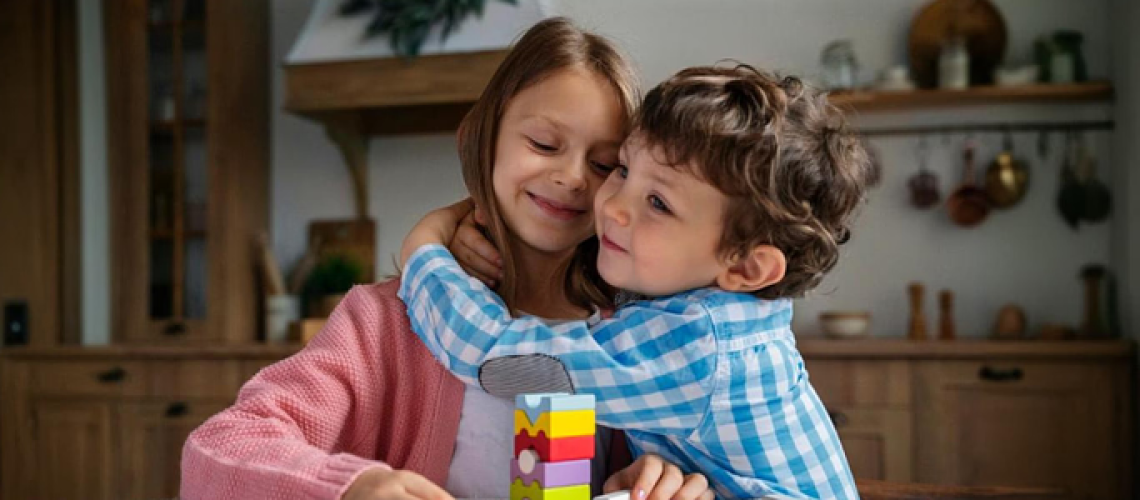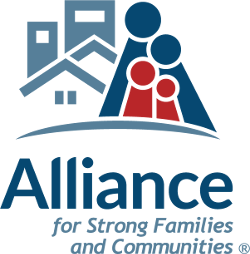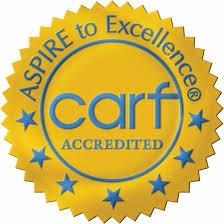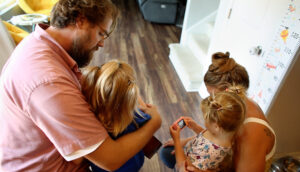Connections with siblings are some of the most important relationships in a child’s life. Yet, when siblings enter foster care, they are often separated. According to Adopt US Kids, nearly two-thirds of children in foster care have a sibling who is also in care. Unfortunately, many siblings in foster care are separated due to placement challenges. There is a need for families willing to foster sibling groups and keep these support systems and bonds intact.
The Up Center works to ensure siblings in foster care have the chance to grow and thrive together. This blog explores the importance of fostering siblings, its challenges and rewards, and the resources we provide for families ready to take on this responsibility and opportunity.
Why Keeping Siblings Together Matters
There for Each Other
For children in foster care, the transition to a new environment can be overwhelming and feel isolating. Siblings provide familiarity, comfort, and emotional support during times of uncertainty. With a shared history, siblings understand each other’s experiences and can offer a safe space for expressing feelings, helping to cope with trauma and adjust to new situations.
Sibling relationships also significantly contribute to emotional and social development. Through their interactions, siblings teach each other life skills like conflict resolution, teamwork, and empathy. In foster care, siblings also help maintain cultural identity and continuous support in new environments.
The Risks of Separation
Separating siblings in foster care can lead to long-term consequences. According to a research study published by the National Library of Medicine, siblings separated in foster care are more likely to experience mental health challenges and struggle academically compared to those who remain together.
Separation from siblings can increase feelings of loneliness and abandonment, disrupt familial bonds, and make it more challenging for children to form trusting relationships.
If you’ve ever considered opening your home to a child in need, explore our comprehensive guide on becoming a foster parent in Virginia. It walks you through the process, outlines requirements, and connects you with resources to help you succeed.
Challenges of Fostering Siblings
Addressing More Needs
Fostering or adopting sibling groups means managing a larger household, which can come with logistical considerations. Families may need to have more space, additional bedrooms, and larger vehicles for transportation. Budgeting for food, clothing, and extracurricular activities for multiple children can also be a concern.
Family Dynamics
Every sibling group has its own unique dynamics, which can include sibling rivalries or varying emotional and behavioral needs. For foster parents, navigating these potentially complex relationships means practicing a thoughtful approach to finding ways to ensure each child’s needs are met individually while maintaining harmony between siblings.
Rewards of Fostering Siblings
Deep Bonds
One of the most rewarding aspects of fostering children, especially sibling groups, is witnessing the joy and love that siblings can share when they remain together. Providing a stable and loving home for siblings helps them continue to build existing relationships and provide support for each other.
Long-Term Outcomes
Children who remain with their siblings while in foster care are more likely to maintain strong emotional health, perform well in school, and develop the resilience to overcome challenges in life. By fostering siblings, you’re not just keeping families together, you’re investing in their future.
Fostering Sibling Groups with The Up Center
Fostering sibling groups requires a strong support system. Without access to sufficient guidance, it can feel like an overwhelming responsibility. That’s where foster care organizations like The Up Center provide foster parents with the support and resources they need to succeed.
- Start with the Right Mindset: Fostering siblings requires patience, empathy, and a deep commitment to creating a loving environment. Building trust and nurturing each of your child’s individual growth are crucial aspects of fostering.
- Training: Foster parents will receive comprehensive training on child development, a trauma-informed curriculum, and care strategies for fostering siblings.
- Financial Assistance: The Up Center can offer financial assistance to help alleviate the costs associated with foster care. Foster parents often receive a monthly stipend to assist with the costs of caring for foster children and provide a stable environment. These stipends are intended to cover the child’s basic needs such as food, clothing, and personal care items.
- Counseling Services: Our trauma-informed counselors at The Up Center specialize in addressing the emotional and behavioral needs of children in foster care. Whether it’s helping a child process their past or guiding parents in managing sibling dynamics, we are here to provide any necessary support.
- Community Resources: The Up Center connects foster families with peer support groups, mentoring programs, and other community resources. These networks create a sense of understanding and shared purpose, making the fostering experience more rewarding.
The need for families willing to foster or adopt sibling groups is urgent. Every day that siblings spend apart, they lose valuable time to grow and heal together. As a foster parent, you have the power to change not just one life, but an entire family’s.
If you’ve been considering foster care and adoption, The Up Center is here. Contact us today to learn how you can significantly change the lives of siblings in foster care.
Frequently Asked Questions
1) What is the biggest challenge of fostering siblings?
The greatest challenge often lies in the logistical and emotional complexity of caring for multiple children at once. Sibling groups can vary widely in size, age, behavioral needs, and emotional readiness—and navigating those differences while maintaining family harmony can be demanding.
Balancing individual attention among siblings while honoring their shared history requires intentional planning and support. Sibling rivalry, differing trauma responses, and ensuring each child feels heard as part of the same foster home dynamic especially highlight the demanding nature of fostering siblings.
2) Do siblings in foster care always get placed together?
No — although widely recognized as best practice, siblings are not always placed together. National estimates indicate that between 53 % and 80 % of children with siblings in care end up separated due to factors like size of the sibling group, differences in care needs, or separate entry dates into foster care.
Still, children’s services agencies are generally required to make reasonable efforts to place siblings together whenever it’s safe and in their best interests. When separation is necessary, agencies must promote ongoing contact and visitation.
3) What financial support is available for fostering sibling groups?
At The Up Center (in Virginia and surrounding areas), foster parents receive monthly stipends intended to help cover basic needs—food, clothing, personal care—for each child in foster care, including sibling groups. Additional support may help cover medical, therapy, and educational costs as needed.
These stipends are designed to scale with household need (e.g. larger sibling sets), and specialized funding may be available for siblings with disabilities or high needs. We help families access Medicaid or grant-funded programs and can connect them to state reimbursement systems tailored for larger placements.
4) How can I prepare my home for fostering siblings?
Preparing your home for siblings means planning for both practical space and emotional readiness:
- Ensure you have enough physical space—bedrooms, bathrooms, storage—for multiple children.
- Discuss the upcoming placement with everyone in the household, including biological children and extended family members. Outline roles, routines, and expectations to promote a shared vision of care.
- Think through daily logistics—transportation, school schedules, meal planning—and how to balance each child’s needs.
- Engage in training through The Up Center, including trauma‑informed care and sibling-specific workshops that address managing sibling dynamics in a foster setting.














